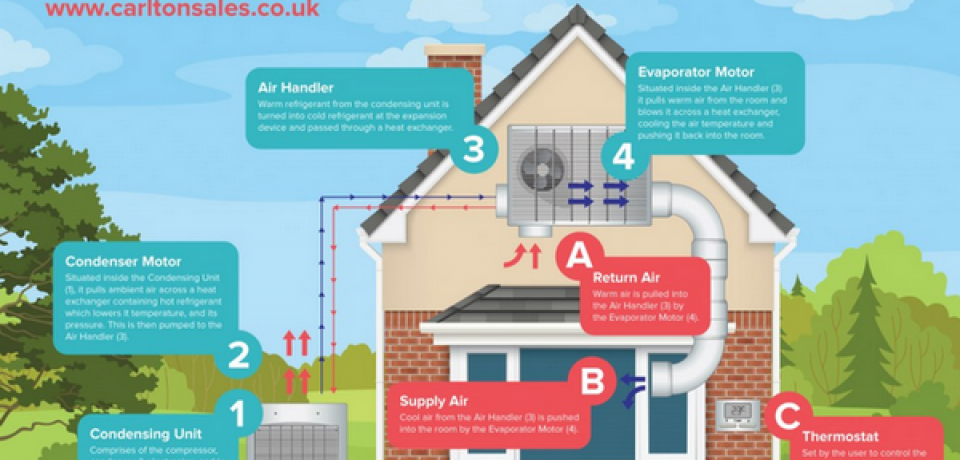Exploring The Ecological Advantages Of Warm Pumps - A Lasting Home Heating Solution
Exploring The Ecological Advantages Of Warm Pumps - A Lasting Home Heating Solution
Blog Article
Team Author-Moser Bech
In a period where sustainability and power effectiveness are critical, lots of companies look for eco-friendly heating remedies. One such service is the heatpump.
A heat pump extracts the warmth in its surroundings and pumps it into your home, resulting in among one of the most effective environmentally friendly main heating systems around. This procedure likewise creates absolutely no greenhouse gas exhausts, making it a very sustainable modern technology.
Energy Effectiveness
Heatpump are extremely power reliable and require little maintenance. They use much less electrical power than other heating unit and are without a doubt one of the most environmentally friendly. They function well with rooftop solar and can typically pay for themselves in energy cost savings alone.
They can also supply air conditioning, which is fantastic for garage workshops, attic hangouts and benefit areas, and home additions without extending the existing ductwork. They can even be made use of for retrofits in existing homes with hydronic (water-based) circulation systems such as reduced temperature level radiators or radiant floors.
Look for models with SEER and HSPF scores that satisfy or surpass Canada's minimum standards, as well as the requirements in your area. Higher scores imply better effectiveness, which saves you money in the long run and decreases your carbon impact. domestic air conditioning canterbury might also get discounts and rewards! The best systems are those with a ground warmth exchanger for added efficiency. These systems can take in thermal power from the ground during the winter and remove it in the summer season.
Lowered Greenhouse Gas Emissions
Heat pumps operate on electrical power and basically move warmth from the air, even when it's cool exterior. They are able to remove the complimentary heat entraped in air fragments and move them indoors, minimizing humidity while doing so.
Compared to gas heaters, modern heat pumps utilize less than one kilowatt of electricity per kilowatt of heating power they generate. This makes them one of the most energy reliable heating choice readily available with a COP (Coefficient of Efficiency) of four or more. By lowering the demand for fossil fuels, heatpump help in reducing greenhouse gas exhausts and reduce various other significant air pollutants.
Structure decarbonization is a global essential, and the cooling and heating sector is a crucial vehicle driver of that process. Whether it's investor making internet absolutely no dedications, plan manufacturers establishing exhausts limits, or lessees requiring greener areas, electrical heatpump are being recognized as an essential solution. They are a cost-effective way to reduce carbon discharges by getting rid of the demand for fossil fuels in buildings.
Versatility
Heatpump can be utilized in many types of homes and structures-- with or without air ducts. They collaborate with hot-water radiators, air-conditioning and programmable thermostats. They can change heating systems or be mounted in brand-new houses. They can work on solar panels, geothermal systems and even area heating resources like wastewater.
They're wonderful at providing more warm per power unit. For example, an air-source heatpump produces approximately three or even more heating devices from each power system it consumes.
Obtaining one of the most from your heatpump will certainly depend upon your climate area and quality of insulation. Try to find versions with ENERGY STAR rankings and compare their SEER or HSPF specs. In warmer environments, focus on SEER; in cooler areas, take into consideration a system with a higher HSPF rating. Furthermore, invest in air sealing and insulation to lower the lots on your heatpump. That will boost energy efficiency and aid you reach your Net Zero goals much faster.
Biomass Boilers
Biomass central heating boilers make use of wood pellets, chips or logs to produce heat and hot water. They are a good selection for off-grid homes or those who want to leave the gas grid.
As a standalone heating system, biomass can offer adequate energy to keep your home warm all year round without the typical warmth drop off of other renewable innovations. They can likewise be made use of in conjunction with solar panels to maximise savings and take advantage of RHI repayments.
A drawback of these systems is the ahead of time price and normal gas distributions. Typically, pellets will need to be blown into a fuel store using a vacuum system or they can be by hand fed into the boiler via a receptacle. Read More Here are generally self-sourced from neighboring forest or bought in bulk. In https://www.gobankingrates.com/investing/real-estate/avoid-flop-25-house-flipping-tips/ to this, they need hand-operated loading and may require cleansing regularly.